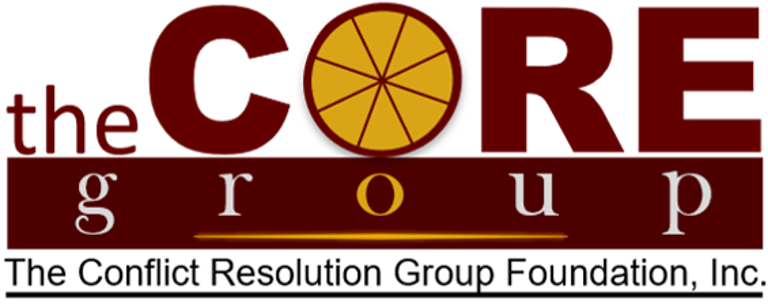Handling A Conflict in Values
We explore the framework for conflict resolution which we call Values-based Mediation.
BLOG
Mia Theresa Corpus
6/28/20233 min read


Let me start with the basic context:
Values are deeply rooted in our identities and represent what we hold dear at our core. They are shaped by our life experiences and tend to remain relatively stable over time. Our values influence our decision-making, perceptions, behaviors, and the conflicts we engage in. Recognizing and understanding our values is crucial in comprehending the conflicts we experience and seeking resolution.
Now, we add the framework to this understanding:
The concept of the Circle of HumanityTM provides a framework for understanding the layers of our identity. At the core of the circle lies values, representing universal principles such as love, trust, respect, and more. Surrounding values are programs, which encompass the beliefs, skills and perspectives we develop as we grow, influenced by our interaction with the world. The next layer is attitudes or mindset, serving as a bridge to the outermost layer: behaviors. Behaviors are the expressions of our values and programs in our actions as we interact with others.
Self-reflection as a first step:
As we embrace the Circle of HumanityTM in the process of mediation, we allow parties to look within themselves first focusing on their fundamental nature of being. Mediators utilizing ontological coaching principles create a safe space for open dialogue, encouraging individuals to explore their needs, perspectives, assumptions, and values related to the conflict. This process cultivates self-awareness, enabling individuals to take ownership of their contributions to the conflict and make conscious choices about their involvement in the mediation process.
Taking a step towards building a relationship:
Empathy and understanding are fundamental components of values-based mediation. Mediators foster active listening and guide parties to seek a deeper understanding of one another's perspectives and motivations. By identifying shared values and interests, the mediator builds empathy and collaboration among the conflicting parties.
Bravely addressing roadblocks and finding value in values:
Challenging limiting beliefs and assumptions is an essential aspect of conflict resolution. The mediator supports individuals in examining their beliefs, considering alternative perspectives, and expanding the possibilities for resolution. This process empowers individuals to align their behaviors with their authentic values and promotes a shared understanding of each other's experiences and needs.
Jointly moving forward:
The mediator facilitates the establishment of clear goals for conflict resolution. Mediators assist parties in defining goals that are aligned with their values and interests. Collaboratively developing action plans ensures purposeful steps toward achieving mutually beneficial outcomes.
By integrating ontological coaching principles into the mediation process, individuals are empowered to navigate conflicts with self-awareness, empathy, and authenticity. This holistic approach transcends surface-level issues and addresses the underlying dynamics that contribute to the conflict. Through ontological mediation, transformative resolutions are achieved, and stronger relationships are cultivated among the parties involved.
Understanding the impact of values, beliefs, and behaviors in conflict resolution is crucial. While values themselves are non-negotiable, the negotiation lies in the behaviors that express those values. Recognizing this distinction allows for constructive dialogue and the exploration of alternative behaviors that accommodate diverse values. By embracing the principles of ontological coaching and acknowledging the individuality, as well as universality, of values, conflicts can be approached with empathy, authenticity, and a commitment to transformative resolution.
I recently read an article about how to handle situations where there are conflicting values. I wanted to add the perspective of what we teach at The CoRe Group to broaden the context and conversation of values in conflict.
First, we acknowledge that values conflict is a common occurrence in various aspects of our lives, from personal relationships to professional settings. Resolving such conflicts requires an approach that goes beyond mere problem-solving and delves into the underlying beliefs and values of individuals involved. This is where our Values-based Mediation, based on the ontological coaching approach and transformational conflict resolution principles, can play a highly impactful role.
